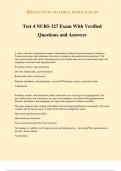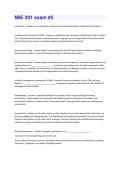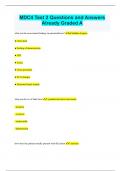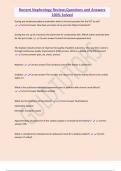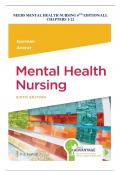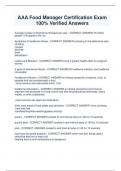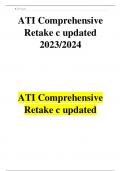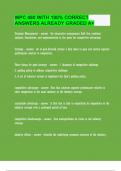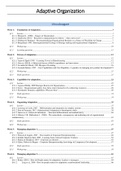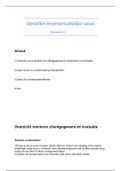Tentamen (uitwerkingen)
Test 4 NURS 327 Exam With Verified Questions and Answers
- Vak
- Instelling
Test 4 NURS 327 Exam With Verified Questions and Answers A client with status asthmaticus requires endotracheal intubation and mechanical ventilation. Twenty-four hours after intubation, the client is started on the insulin infusion protocol. The nurse must monitor the client's blood glucose le...
[Meer zien]
